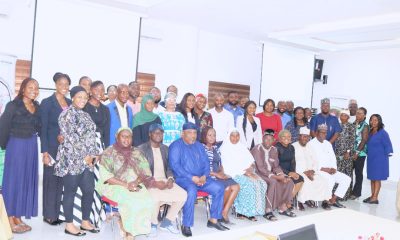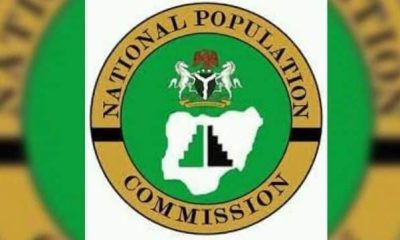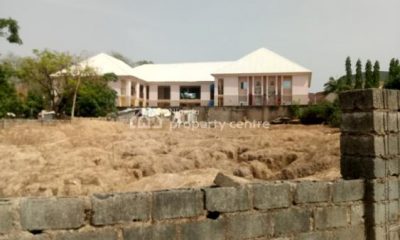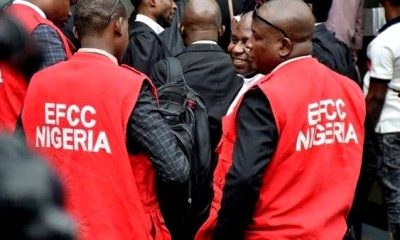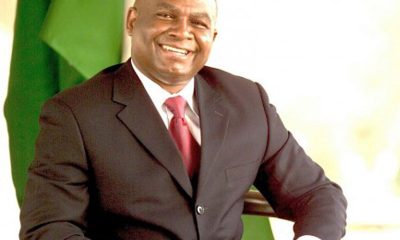NEWS
Why Nasarawa APC, Tinubu Should Not Jettison Nasarawa’s Traditional Political Architecture

By Abel Zwànke, Lafia
As the 2027 general elections approach, the political atmosphere in Nasarawa State is gradually heating up, with permutations already flying across the political landscape.At the center of discussions is the growing national influence of certain political figures who have begun positioning themselves for the governorship ticket.
However, several political observers, stakeholders and analysts argued that any move to impose candidates from outside the state’s grassroots dynamics could destabilize the political balance and may not necessarily align with President Bola Ahmed Tinubu’s long-term political strategy. Some aspirants are widely seen as enjoying support from the national level, riding on the wave of political inclusion and party expansion championed by the Tinubu administration. While this national spotlight may serve as a plus, it does not automatically translate into grassroots support back home in Nasarawa State.There’s a growing sentiment among stakeholders that President Tinubu must resist the temptation to upend Nasarawa’s internal political balance by influencing candidate emergence through the Villa.The whispers of imposition raise not just questions about the suitability of such candidates, but also about the party’s cohesion and sustainability in the state.Though some aspirants possess national presence, repeatedly highlighting them gives undue publicity that could sway public perception—perception that may not reflect sentiments on the ground.The political engine of Nasarawa is built on traditional alliances, grassroots mobilization, and internal consultations, not on media presence or external endorsements.Analysts are of the view that the APC at the national level must recognize that Nasarawa is not a state where electoral success can be dictated from Abuja.Over the years, the political tradition of Nasarawa has revolved around a tripod of fairness, grassroots consensus and respect for the rotation principle.The 2027 election presents a critical test of this unwritten understanding.A Note of Caution to the Villa Political observers have cautioned that as President Tinubu cements his legacy across the country ahead of 2027, Nasarawa stands as a litmus test. “He must resist pressure from close allies or political associates who seek to anoint preferred candidates without consultations. Leadership is not about favouritism; it is about safeguarding the party’s future.””The warning signs are already there. Imposing a candidate—especially one with more visibility nationally than locally—risks alienating the APC base in Nasarawa.” “It could create a vacuum that opposition parties will exploit, especially in a state known for swinging when the ruling party is divided.”A political scientist from the Federal University of Lafia stressed that “It is not enough to have a candidate that can speak on television or navigate the halls of the National Assembly.” “The 2027 battle will be fought on the streets of Nasarawa, in polling units and markets, in palaces and places of worship. Only someone who understands this terrain can lead successfully.””President Tinubu must encourage free, fair, and credible primaries within the APC in Nasarawa State. The will of the people—expressed through the party structure—must be respected.” “Any act of imposition may be seen not just as an affront to the party but a personal disregard for the state’s political wisdom.”However, there is a growing conversation of equity and regional fairness. Political observers argue that in the spirit of justice and rotation, 2027 should be the turn of Nasarawa West. This is no longer just a zoning demand—it is a call for strategic electoral sense.With the largest voter population, highest polling strength, and robust political intelligence, Nasarawa West deserves the opportunity to produce the next governor. Any attempt to bypass this reality may lead to voter apathy or direct protest votes in the general election, which could cost the APC dearly.The principle of natural justice transcends politics; it speaks to the conscience of the people. Nasarawa West Senatorial District had produced a candidate once in the person of a former governor who served for 8 years and handed over power to Nasarawa South, which ruled for another 12 years through two successive administrations. The North is currently serving its term.The Nasarawa West Senatorial District, home to key local governments such as Keffi, Karu, Kokona, Nasarawa, and Toto, has been pivotal in campaign mobilizations during past elections. Yet, the region has waited patiently for its turn to govern the state again after over two decades. Denying this region another opportunity, despite its overwhelming numerical strength, would be politically suicidal.Strategic voting patterns show that Nasarawa West not only delivers votes but also influences adjacent zones. From polling unit coordination to ward-level structure, the district possesses a formidable political base that no serious party can afford to take for granted.In the same development, political analysts have emphasized why the APC must critically examine the credentials of all aspirants before making any decisions. There is a strong plea by party chieftains and stakeholders that aspirants must emerge through a transparent and inclusive process that reflects local reality, not the dictates of the Villa.Among those being considered, emphasis is being placed on credibility, grassroots engagement, leadership experience, and broad acceptability across ethnic and religious divides. These are the pillars upon which electoral victory rests in Nasarawa State.In contrast, technocratic brilliance without street-level connection or prior electoral participation is viewed by stakeholders as risky at a time when the state’s political fabric is highly dynamic and competitive.According to pundits, “The case is clear: if Governor Abdullahi Sule wants to maintain a strong APC base in Nasarawa, the 2027 ticket must reflect regional justice, electoral intelligence, and grassroots acceptability.” It must not be influenced by Abuja lobbyists or national appointees with limited local roots.Nasarawa deserves a governor who represents its true political DNA—electable, accessible, experienced and tested. That is the only path that guarantees continued relevance and victory for the APC in the state come 2027.NEWS
Immunization: Stakeholders raises alarm over 2.6m zero dose children in 2020
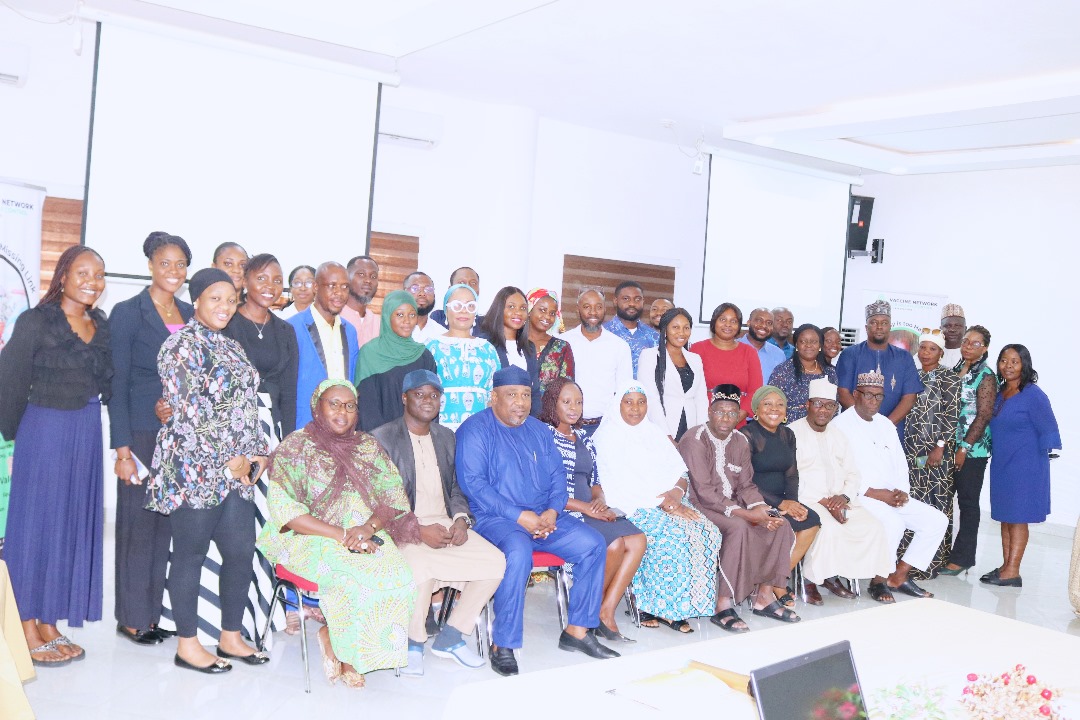
By Laide Akinboade, Abuja
Stakeholders in the Health sector, have raised alarm over
2.6 million children in Nigeria being zero-dose, in 2020, meaning they had not received a single dose of any vaccine in the immunization schedule.
Chika Offor, CEO of Vaccine Network for Disease Control, who was one of the speakers, at a recent immunization budget analysis workshop, raised the alarm in Abuja.
The theme for the workshop is, “Sustaining Immunization through Strong Primary Healthcare: Empowering Advocacy and Partnerships for Long-Term Vaccine Financing at the Subnational Level,”.
She lamented that, Kano State has the highest number of zero-dose immunization cases in Nigeria, with 15 local government areas (LGAs) identified as high-burden, according to Save the Children.
According to her, “The 2021 Multiple Indicator Cluster Survey/National Immunization Coverage Survey (MICS/NICS) revealed that in Northern Nigeria, an estimated 65% of children are categorized as zero-dose, with the North East and North West regions accounting for 27% each. Bauchi State in the Northeast has the second-highest zero-dose rate at 35%. These statistics indicate that Nigeria faces significant challenges in achieving the Immunization Agenda (IA2030) target of fully vaccinating 90% of eligible children by 2030.
“Gombe State: Gombe State is estimated to have a significant burden of zero-dose children. Recent reports indicate that Gombe accounts for a substantial proportion of the zero-dose child population in Nigeria, with estimates placing the number around 53,000 and routine immunization coverage for key antigens like DPT1 and DPT3 hovering around 30%.
“Kano State: As the most populous state in Nigeria, Kano faces immense challenges in reaching all eligible children with vaccines. Despite improvements during targeted campaigns, significant coverage gaps remain, with overall routine immunization rates reported at approximately 40% for DPT3, indicating a high number of zero-dose children.
Jigawa State: Jigawa State struggles with optimal routine immunization coverage, recording about 32% for DPT3. Despite efforts to strengthen healthcare systems, a notable number of zero-dose children persist, with estimates indicating that 45,000 children have not received any vaccinations..
“Bauchi State: Bauchi State grapples with low routine immunization coverage, estimated at 38% for DPT3. The state faces challenges related to infrastructure and community acceptance, with approximately 60,000 children classified as zero-dose, highlighting the need for targeted interventions.
“Adamawa State: Adamawa State faces significant challenges in immunization coverage, contributing to a notable burden of zero-dose children. Recent estimates indicate that around 47,000 children in Adamawa have not received any vaccinations. Routine immunization coverage for key antigens, such as DPT3, is reported to be approximately 35%, highlighting a critical need for targeted interventions to improve access and uptake of immunizations. The state’s healthcare infrastructure and community engagement efforts are essential to addressing these gaps and ensuring that all eligible children are vaccinated”, she said.
While Ekiti State has one of the highest number of coverage with over 90% immunization coverage, setting an example of what is possible even within the Nigerian context.
The stakeholders therefore agreed that it is imperative for the three tiers of government and citizens to prioritize domestic resource mobilization to safeguard the country’s immunization progress and prevent the collapse of its Primary Health Care system.
Chika who lamented over the growing vulnerability of the poor, especially as many PHCs in the Federal Capital Territory (FCT) remain shut due to local government staff strikes.
“Do you know that many of the primary health care centers in the FCT are closed?” she asked. “The LGAs are on strike, and because of that, the health centres are shut. Now let’s think what happens to the poor and vulnerable who cannot afford private hospitals?”
Offor commended the resilience of participants who travelled from various states some risking insecurity in the North to attend the workshop.
“I want to celebrate my brothers and sisters who came by road from the North despite all the insecurity. They risked their lives to be here because they believe in strengthening the health system,” she said, drawing applause.
She emphasized the need for Nigerians to take ownership of their health systems and end overreliance on foreign aid.
“Let us come with our passion. Let us come with the desire to make that change to learn. We cannot continue depending on external funding. It’s time we looked inward to finance our own health solutions,” she said
Her sentiments were echoed by Chika Nwannko, Head of Programs at the Vaccinate Health and Disease Program, who argued that the COVID-19 pandemic should have taught Nigeria the importance of self-reliance.
“At the beginning, if nothing taught us anything, COVID did. Despite all the aid from the global net, they prioritized their people and rightfully so. This is our country. We must begin to look inward,” Nwannko said.
She shared stories of grassroots innovation, including one from Imo State, where 30 women, after receiving small grants, raised ₦500,000 to purchase blood pressure monitors and weighing scales for their community PHC.
That’s ownership. That’s sustainability,” she noted.
In Abuja’s Kabusa community, Nwannko highlighted how Beelback Kitchen, a local restaurant, renovated and equipped a PHC through its corporate social responsibility initiative.
What are we talking about? A restaurant is financing a PHC. So yes, anyone can do it. Philanthropists, CSOs, private individuals. It’s time to shift from dependency to partnership and participation.”
According to her, the new approach emphasizes structured collaboration between civil society, government, media, and the private sector with memoranda
memoranda of understanding and clear operational frameworks to ensure sustainability.
As Nigeria continues its efforts to eliminate zero-dose children and expand equitable healthcare, stakeholders at the forum agreed on one thing: the future of public health must be homegrown.
Yes, international donors are welcome. But sustainability? That must be Nigerian,” Nwannko concluded.
Earlier , Muhammad B. Abdullahi, Deputy Director of Primary Healthcare in Jigawa State, said they had drastically reduced the number of zero-dose children through State Outreach Days and mobile immunization teams.
“Our Masaki Project, which uses local food to combat malnutrition, is another community-driven initiative making a difference,” he added.
The Masaki Project trains volunteers to teach families how to use locally available food to prevent malnutrition, identify at-risk children early, and refer severe cases for treatment.
NEWS
NPC Commissioner Designate Donates N55m Classrooms to Nasarawa Community
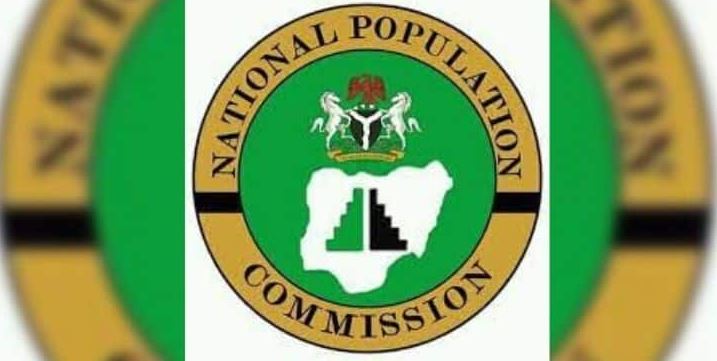
Dr Joseph Kigbu, newly appointed Federal Commissioner, National Population Commission (NPC) representing Nasarawa State, has donated a classroom block worth N55 million to the Barki Abdullahi (BAD) community, Lafia Local Government Area.
Kigbu inaugurated and handed over the project at the Roman Catholic Mission (RCM) Primary School to government on Friday in Barki Abdullahi.
He said that the donation was meant to give back to the community that made him what he had become in the society.
Kigbu, a former Federal lawmaker representing Lafia/Obi Federal Constituency in the House of Representatives, was recently appointed by President Bola Tinubu as a Commissioner to represent Nasarawa State at the NPC, but yet to assume office.
He explained that the structure consisted of three classrooms, an office, all connected to solar system, and national power grid.
“This is the school I attended and since God has blessed us, we must support the school and make it more conducive for learning.
“Students in our villages do not need to go to schools in cities before they use electricity to learn,” he added.
Kigbu said he had dedicated his life to serving humanity both in and out of public office.
He said: “Even before I was elected to the House of Representatives in 2011, I had a medical forum that offered free medical treatments to indigent people across the state.
“While in public office, there was no part of my constituency that I had not made a mark in terms of projects and empowerment.
“I gave them quality representation, and the free medical treatments are still ongoing in the state and other parts of the country.
“I have also completed the building of the multi-billion naira hospital for the poor in Azuba, Lafia.
“The hospital, equipped with state-of-the-art equipments, would begin operation in September 2025.
“The hospital is for the poor and services will be free of charge by the grace of God.”
He also used the opportunity to appreciate President Tinubu and Gov. Abdullahi Sule for his recent appointment as a federal commissioner to represent the state in NPC.
He further declared his intention to join the 2027 governorship race in the state.
Receiving the project, Gov. Abdullahi Sule represented by Mohammed Sani-Bala, Permanent Secretary, Ministry of Education, thanked the philanthropist for the gesture.
He described the project as special one that would go a long way to complement the effort of the government toward providing quality education in the state.
Similarly, Dr Aliyu Bello, Nasarawa State Chairman of All Progressives Congress (APC), appreciated the donor for his philanthropic efforts.
Bello congratulated Kigbu on his new appointment and called on other leaders to emulate him and give back to their communities. (NAN).
NEWS
BEDC Rejects Alleged Takeover Plot by Ondo Govt, Urges Respect for Regulatory Framework
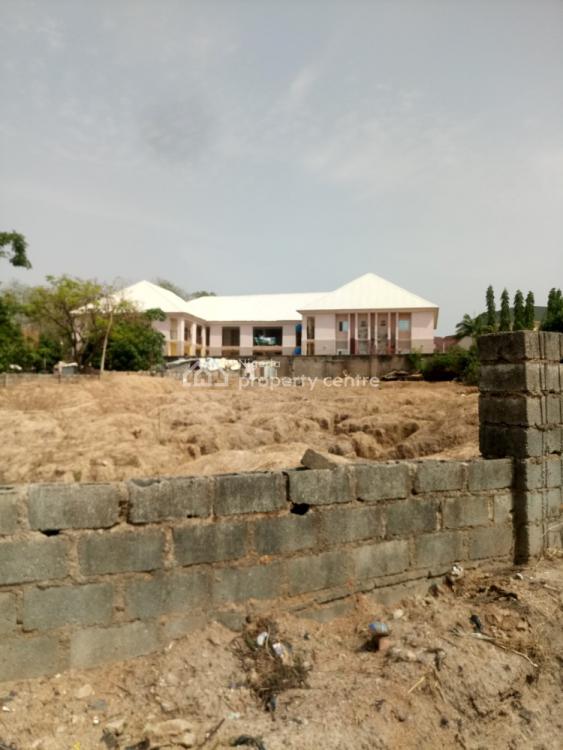
The Benin Electricity Distribution Company (BEDC) and its subsidiary, BEDC Electricity Ondo Limited (BEOL), have strongly condemned an alleged plan by the Ondo State Government to assume control of electricity distribution operations in the state.The condemnation was issued in a statement responding to the announcement by the Special Assistant to the Ondo State Governor on Power, describing the state government’s move as illegal, provocative, and disruptive to ongoing partnerships.
BEDC’s statement was released on Friday in Benin by its Chief Revenue Cycle Manager, Mr Collins Igwe.According to Igwe, while the Electricity Act 2023 empowers states to regulate their electricity markets, it does not authorise them to unilaterally take over distribution operations.BEDC stated that any such move would violate the joint communiqué reached after a strategic meeting between BEDC/BEOL and the Ondo state government aimed at addressing power challenges.“Any such move undermines the spirit of collaboration and mutual understanding agreed upon to resolve electricity issues in the state.“We have a legal mandate to operate in Ondo. This attempted encroachment is unacceptable,” Igwe said.He emphasised that the power supply challenges in Ondo were part of broader national issues, and reiterated BEDC’s commitment—through BEOL—to implementing long-term, sustainable solutions.“We are open to partnerships, but any approach must respect due legal processes and the agreements made in good faith,” he added.Igwe also explained that the jointly signed communiqué established a clear roadmap for collaborative solutions.He said it recommended the creation of a power supply committee to address electricity access in underserved and unserved communities through a mutually agreed framework.The company warned that any unilateral action or interference in its operations would constitute a breach of agreement and could disrupt electricity distribution services across the state.“The company reaffirmed that it remains the duly licensed operator in Ondo and will protect its infrastructure in line with Nigerian laws and regulatory standards.“We call on those currently attempting to interfere with our infrastructure to desist immediately to avoid legal consequences,” the statement said.Igwe further urged the public to disregard the controversial publication, describing it as misleading, unauthorised, and detrimental to ongoing collaborative efforts.He reaffirmed the company’s commitment to delivering improved electricity services in Ondo state, prioritising transparency, legal compliance, and community engagement.“We remain focused on constructive dialogue with all stakeholders to ensure sustained progress and stability in Ondo state’s power sector,” Igwe said.(NAN)
